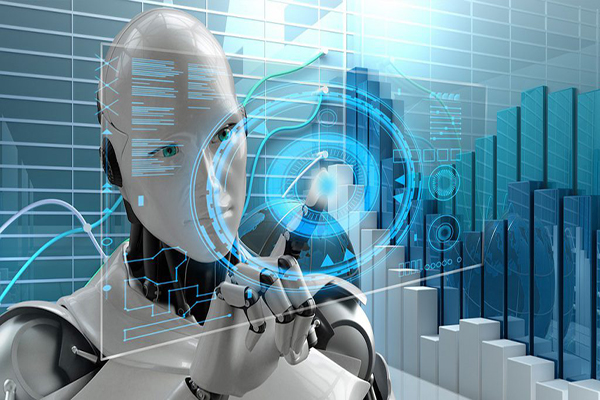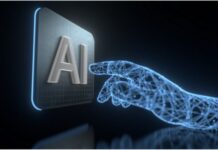The invention of Artificial Intelligence, or AI as it is commonly called is credited to John McCarthy in 1950. John McCarthy was an American computer scientist and cognitive scientist. He was one of the founders of the discipline of artificial intelligence. He co-authored the document that coined the term “artificial intelligence” (AI), developed the programming language family Lisp, significantly influenced the design of the language ALGOL, popularized time-sharing, and invented garbage collection. McCarthy spent most of his careerThe invention of Artificial Intelligence, or AI as it is commonly called is credited to John McCarthy in 1950. John McCarthy was an American computer scientist and cognitive scientist. He was one of the founders of the discipline of artificial intelligence. He co-authored the document that coined the term “artificial intelligence” (AI), developed the programming language family Lisp, significantly influenced the design of the language ALGOL, popularized time-sharing, and invented garbage collection. McCarthy spent most of his career at Stanford University (USA). Artificial Intelligence which has become as the buzz word of today’s society is the capability of machines to perform tasks like humans, especially in intelligent decision-making. AI based new inventions have ranged from self-driving cars to an increasing role in flying airplanes. AI is a technology that is not only reserved for doing high-stakes tasks but has found its way into our homes, helping us perform daily tasks. Artificial Intelligence (AI) is happening now and is being adopted rapidly, with its use being found in every other product and domain. This sudden adoption of AI has caused a transformation in our lives, given the merits and demerits of AI. Therefore, the bottom line of AI is that a machine can perform tasks intelligently like humans without being explicitly instructed on how to perform a task. Modern-day AI systems employ several techniques (also considered AI sub-domains) to perform tasks like humans. These include natural language processing (NLP), computer vision, machine learning, deep learning, the use of big data stores to answer complex questions, etc. However, widespread adoption of AI without a complete and comprehensive understanding of its benefits and drawbacks may result in significant problems. This article aims to introduce to the pros and cons of AI.
Advantages of AI
The benefits of Artificial Intelligence are clearly visible in the form of AI-enabled chat support for brands, auto-search on search engines, smart predictions on e-Commerce platforms, and more. Advantages of Artificial Intelligence are:
Human Error Reduction: This is why artificial intelligence has been adopted in various domains. When you can nullify human errors completely, you get accurate results. The catch is to program properly. Machines make accurate decisions based on the previous information that they gather over time while applying certain algorithm sets. Thus, there is a reduction in error and a spike in accuracy.
Zero risks: The main impetus behind introducing AI has been to replace humans with tasks that machines can do better or help in other ways. One of the advantages of AI is that it helps reduce risks associated with specific tasks. These tasks range from bomb defuse, fuel exploration, and mining to space exploration.
Round-the-clock availability: Fatigue is an essential human behavioural component that needs to be considered when planning timelines for completing a task. This is because the maximum productivity of any human is between 3-4 hours a day, and working beyond this gradually reduces their productivity due to lack of concentration and tiredness. Also, humans cannot be available 24 x 7 for performing a task. On the other hand, an AI-enabled machine can work as well as a human all the time with the same level of precision.
Efficient in Repetitive Tasks: As discussed above, due to its availability rate and level of accuracy, AI has become the ideal choice to automate repetitive tasks. These tasks are especially prone to human error as they are not dynamic and require you to perform the same job repeatedly, inducing boredom in the person doing the task.
Better Workflows: Increase in efficiency at workplaces is from the many advantages of artificial intelligence. This is mainly due to the saving of time and cost. Coupled with modern-day AI’s accuracy, this leads to a better, more cost-effective workflow.
Better Data Analysis: Going through voluminous data to detect patterns can be a tedious task. There can always be a possibility of losing out on some patterns, or because of the time and cost constraints, the analysis cannot be done deeply. Here, there is an advantage of AI as it can, with an appropriately trained algorithm, surface significant trends, reveal crucial information, and even recommend solutions helping in informed decision-making.
Medical Applications & Healthcare: AI has revolutionized the field of medicine by helping to develop various systems for the early detection of diseases like cancer. AI has also helped the healthcare industry in general. For example, AI models can help health insurance companies determine the future complications of an applicant and suggest a health plan accordingly.
Social Uses: The role of AI in helping society, in general, cannot be discarded. AI has helped in natural disaster response by assisting concerned departments in managing problems like an outbreak of deadly diseases to wildfires. In the field of education, AI has helped through adaptive learning. AI has also impacted the field of agriculture as it provided farmers with early detection of crop diseases, assisting them in mitigating risks of crop failures, etc. In addition, AI is also being increasingly used to limit the spread of fake news and rumours.
Better Security: AI has greatly helped make countries’ internal and external security more robust. In modern warfare, the use of AI enables a swarm of drones to confuse the defence system of the enemy country and borrow time for the on-foot troops to invade. Regarding internal security, AI-enabled CCTV cameras and auto-flagging social media posts and messages have led to the early detection of anti-social activities.
Easy Deployment: Among the less talked about advantages of AI is the ease with which individuals starting in the field of AI can implement it and its associated technologies. Today, an AI model performing complex tasks can be created by writing merely 30 lines of code. Unlike the early implementation of AI in the 50s and 60s, modern-day AI is democratized and can be implemented by even those with a surface knowledge of this field.
Solving highly complex problems with Quantum Computing: A lot of basic questions, like the origin of the universe to various fundamental physics questions, require molecular modelling that is highly computationally expensive. The next giant leap for AI can be its integration with quantum computing, as this will give AI the type of computational fuel that will help it solve problems that have stayed unanswered for decades.
Enhanced assistance: AI has also helped in assisting us on various occasions. This assistance has often been in the form of chatbots helping us resolve our problems without delay. Different devices created around voice assistance have allowed us to perform tasks that required a personal assistant earlier. These include taking notes, creating meeting minutes, scheduling and reminding us of meetings, etc.
Disadvantages of AI
However, with all these advantages of AI, there are still serious concerns that should be kept in mind when implementing it. Few of these concerns can be comprehended by understanding the disadvantages of AI as discussed ahead.
AI-enabled machines incur high costs: Among the most important disadvantages of AI is its cost of development. Today, while the required hardware and software are available, a massive cost is associated with running AI, making it costly.
Lack of liability: Another major disadvantage of AI caused when outsourcing decision-making to it is a lack of liability. An AI-backed tool is a product of several people’s work. Now, the difficult task is regarding how to pin the responsibility if the tool makes a mistake.
Machines lack creativity: The issue with machines is that it functions as programmed. While artificial intelligence has made machines capable of learning over time, they cannot learn to think outside the box. A machine will always analyse a situation regarding pre-fed data and past experiences. It is difficult for a machine to be creative in its approach.
Difficulty in creating the correct AI structure: In AI, we must design a neural network that can be created and implemented easily. However, to do it correctly, there are several issues. One needs to decide on a number of artificial intelligence arguments such as hidden layers, neurons, type of activation functions, and type of optimization algorithm, among several other hyper-parameters. To get to the correct architecture, there is a lot of trial and error, which leads to an increase in time and cost. A good model is one that has all these artificial intelligence arguments in a correct manner.
Risk of Unemployment: The need for human interference is going down as businesses look towards more error-free, speedy, 24/7 work culture and risk-free work. Most repetitious tasks are being replaced by AI with bots, impacting many human jobs. This has resulted in the killing of many once-prevalent job opportunities.
Lack of Emotions: While this is a key benefit of artificial intelligence, it is also a con of artificial intelligence. Machines cannot connect with humans because they do not have emotions or sympathy. They require a human of blood and flesh to intervene at one point to resolve an ongoing issue.
Ethical Issues: Ethics is another aspect of the human condition that is challenging to replicate in a machine. A machine lacks morality, and building and communicating morality through technology is challenging. Artificial intelligence can speed up laborious tasks for businesses, but expecting a machine to uphold moral principles is as unrealistic as creating pictures on a blank sheet of paper.
Big-Tech Monopoly: Big tech companies have increasingly monopolized the R&D and use of AI, mainly due to the cost and resource requirements. When they become the sole supplier of AI technology, these tech monopiles can exacerbate the ethical, moral, and transparency problems AI is currently marred with.
Black Box: AI that the implementors and others have found is that it’s not interpretable. This means we cannot understand how the AI model concluded something and produced a result. Neural networks powering AI in machines often face criticism for relying on complex mathematical relationships. This black-box nature of AI has led to all sorts of problems, such as AI bias, that the industry is currently trying to address.
Lack of Improvement: We, humans, get better with experience. Conversely, AI remains as it is until it is trained repeatedly on new data. AI, unlike humans, cannot adapt to the changing environment and requires adjusting its weight constantly.
Privacy Infringement: Among the major cons of artificial intelligence is that it has caused privacy concerns. In many countries, AI-backed CCTVs and other NLP-based tools have been used to monitor citizens and infringe upon their private conversations.
Environmental Impact: As running AI is costly because of the heavy hardware demand and power requirements, it is impacting the environment.















